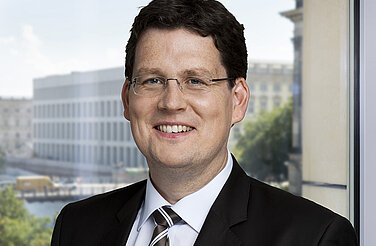This content is also available in: German
Final report on load management study published
The final version of the report entitled “Load Management as a Way of Covering Peak Demand” has now also been published in English. Its main finding is that industrial firms in the two southern German states of Baden-Württemberg and Bavaria can shift more than a gigawatt of their power demand for short periods, which would considerably help ensure the security of power supply in southern Germany.
Agora Energiewende worked with the environmental ministries of Baden-Württemberg and Bavaria to have the study produced. In April, intermediate results were published, and the final version now released is more than 100 pages long.
Germany’s energy transition (Energiewende) poses new challenges for the flexibility of overall power supply, and hence supply security. For instance, in the past two winters grid operators contractually set aside up to 2.6 gigawatts of “cold reserves,” which could be ramped up if a supply bottleneck occurred. When the two nuclear plants are shut off at Grafenrheinfeld (2015) and Gundremmingen B (2017), there will be additional need to ensure reliable power supply in times of peak demand, especially in southern Germany. Along with expanding the grid and further developing storage technologies, one of the main ways to meet that demand is therefore to build new power plants.
The study conducted by the Fraunhofer Institute for System and Innovation Research and Forschungsgesellschaft für Energiewirtschaft on behalf of Agora Energiewende now shows that demand management can also play a role; southern German industry can cover a large part of demand by making their processes more flexible. More than 850 megawatts of power consumption can be switched off for two hours and shifted to a later time. That figure even increases to 1.2 gigawatts for a shorter span of only 30 minutes.
Because a lot of power shortfalls only last a short time, industry can therefore play a crucial role in improving supply security. In addition, heat pumps and overnight heat storage systems offer additional load-shifting potential relative to the time of day and the temperature.
Rainer Baake, director of Berlin’s think tank Agora <link service/glossar/energiewende/>Energiewende</link>, explains: “In this study, we showed that technology already available and controls already installed can provide short-term flexibility equivalent to the capacity of one or two large peak demand power plants. But the current incentives on the power market are not sufficient to tap this potential significantly. We therefore need a competitive market for supply security in addition to our current energy-only market.”
Bavaria and Baden-Württemberg currently have demand of around 25 gigawatts, with industry’s power demand making up some 55 to 60 percent of total power demand in those two states. The nuclear phaseout means that new power plants will be needed to ensure reliable power supply. At the same time, some of this demand can be covered if industrial power consumers in particular can shift their power demand across time. In addition, it will increasingly make sense to shift demand from times of low solar and wind power production to times of greater wind and/or solar production as the share of renewables increases.
The present study is the first to investigate the applicability and potential of load shifting among large consumers in southern Germany. Some 300 firms in Bavaria and Baden-Württemberg were surveyed. They come from some of the most power-intensive industrial processes (chemicals, electro-steel, paper, and cement) as well as from cross-section technologies (such as ventilation and air-conditioning) used in many industries (especially the automotive sector and mechanical engineering). In addition, the potential of heat pumps and overnight heat storage was investigated.
The study’s findings are available for downloading in German and English along with the results of the online survey.

